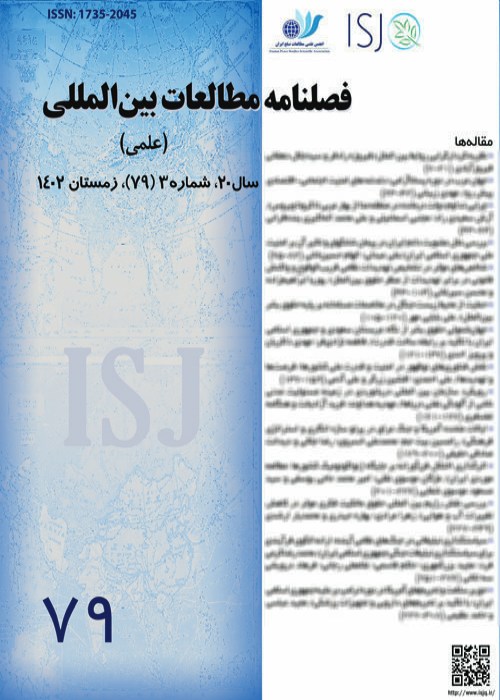International Relations Begin at Home: A Humanitarian Learning Lesson from the Kingdom of Denmark
Author(s):
Article Type:
Research/Original Article (ترویجی)
Abstract:
Extreme measures to reduce the number and cost of refugees and immigrants belong among the recent examples of the Kingdom of Denmark’s illiberal responses to crises in the wake of third party armed conflict. Politically, the process of tightening the law and having a transparently unwelcoming attitude towards foreigners began in 2001, at least according to some experts on Danish foreign policy, e.g. Thomas Gammeltoft-Hansen. While the causes are controversial, the effects are clear. Denmark is undercutting its own history. However popular the current VLAK-coalition government’s Minister of Immigration, Integration and Housingmay be among the Danes, the ongoing series of restrictive policies cannot but result in Red Flags. Irrespective of any motivationally deeper or underlying reasons for their adoption, the relevant legal and other measures constitute international relations events and changes; and, as such, they affect the order among states. In terms of regional and global politics, the question is whether there is an analogy between post-2013 Qatar and post-2001 Denmark? More precisely, the question is whether Denmark should be listed under past as opposed to present “small and influential states”? By using Mehran Kamrava’s work on Qatar as a platform for a role reversal claim, the authors present a muted subtle power argument for the need to downgrade Denmark, too. Furthermore, a tension between the official Danish image and the climate of cultural values in Denmark creates a complex us versus them disconnect which, in turn, makes it possible to provide or, more to the point, explain some aspects of the evidence for the state’s precarious human rights capacity. Part of the argument derives from pre-2001 literary whistleblowing concerning Danishness – a strategy that accords with the popular Danish Minister’s own use of satire as a truth-recognition methodology.
Keywords:
Language:
English
Published:
International Studies Journal, Volume:15 Issue: 1, Summer 2018
Pages:
103 to 156
magiran.com/p1899925
دانلود و مطالعه متن این مقاله با یکی از روشهای زیر امکان پذیر است:
اشتراک شخصی
با عضویت و پرداخت آنلاین حق اشتراک یکساله به مبلغ 1,390,000ريال میتوانید 70 عنوان مطلب دانلود کنید!
اشتراک سازمانی
به کتابخانه دانشگاه یا محل کار خود پیشنهاد کنید تا اشتراک سازمانی این پایگاه را برای دسترسی نامحدود همه کاربران به متن مطالب تهیه نمایند!
توجه!
- حق عضویت دریافتی صرف حمایت از نشریات عضو و نگهداری، تکمیل و توسعه مگیران میشود.
- پرداخت حق اشتراک و دانلود مقالات اجازه بازنشر آن در سایر رسانههای چاپی و دیجیتال را به کاربر نمیدهد.
دسترسی سراسری کاربران دانشگاه پیام نور!
اعضای هیئت علمی و دانشجویان دانشگاه پیام نور در سراسر کشور، در صورت ثبت نام با ایمیل دانشگاهی، تا پایان فروردین ماه 1403 به مقالات سایت دسترسی خواهند داشت!
In order to view content subscription is required
Personal subscription
Subscribe magiran.com for 70 € euros via PayPal and download 70 articles during a year.
Organization subscription
Please contact us to subscribe your university or library for unlimited access!


